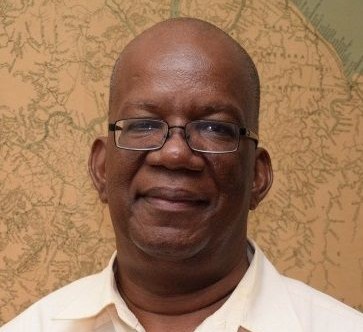The Ministry of Finance this afternoon clarified that the proposed sum to be borrowed for use by the Special Purpose Unit (SPU) as reported in today’s Stabroek News, Guyana Times and Guyana Chronicle, is not solely for the reopening of the Skeldon and Enmore Sugar Estates.
It also includes the financing of critical current and capital programmes, if GuySuCo is to achieve the revised target for this year and the projection for 2019, a statement from the ministry said.
Finance Minister Winston Jordan had said yesterday that for the limited reopening of the Skeldon and Enmore sugar estates next month, government was in the process of borrowing some $10B to 15B from local commercial banks here.
“NICIL (National Industrial & Commercial Investments Limited) is looking to get some financing out of a commercial bank, short term, well a kind of syndicated bond just similarly like the AHI (Atlantic Hotels Inc.) and the building of the Marriott. So similar to that,” Jordan yesterday explained to reporters on the sidelines of an IDB forum held at the Pegasus Hotel.
“Short term financing, maybe three to five years, and in that period the revenues that will come from sale of estates… I think it can be anywhere between ten to fifteen billion dollars,” he added, while saying that a sale could be possible over the next six to nine months.
Stabroek News reported last week of the decision to reopen the Skeldon and Enmore estates by the end of March where some cane cutters would be reemployed. According to sources it is to demonstrate to potential buyers that the estates are viable and as such can be sold as going concerns.
The source explained that there is currently over 300,000 tonnes of sugar cane in the fields of the Skeldon, Rose Hall and Enmore estates and it was government’s Special Purpose Unit (SPU) which proposed that the estates be reopened to utilize the cane.

Minister of Finance Winston Jordan later confirmed this, saying that the SPU would be seeking financing for the reopening.
“If they are closed then the interest of investors and how much you will be able to get from a buyer may be considerably less so the thinking is to keep them in motion,” NCN quoted Jordan as saying.
“The Special Purpose Unit of NICIL is in discussions with a bank to seek short-term financing to get these two operations going for the short term even as they pursue the parallel operation of getting these estates valued and attracting investors. My understanding is (there have been) more than seventy responses to the invitation for bids,” he also explained.
Meanwhile, Minister of Agriculture Noel Holder yesterday distanced his ministry from the current decisions being made, saying that GuySuCo was no longer under the purview of the Ministry of Agriculture.
“GuySuCo is vested in National Industrial and Commercial Investment Limited (NICIL). NICIL falls under the Ministry of Finance. In short, GuySuCo has been removed from the ambits of agriculture to the Ministry of Finance,” Minister Holder stated.
Further, the minister explained that the decision to reopen two estates temporarily has nothing to do with government’s regret at its earlier decisions, but rather a matter of the Special Purpose Unit (SPU) which is the agency established by NICIL to pursue the privatization of the sugar estates, exercising its options.
“It has nothing to do with government per se. We have been informed that under the previous administration some big companies were interested in taking over the sugar industry. The government apparently didn’t go along with that, so these companies pulled out. Some of them are expressing interest. In short, it probably wouldn’t be for sugar but perhaps canned cane juice or something of that sort. I believe the Special Purpose Unit…thinks that if they attempt to divest an estate that is functional they will get a better deal than if it’s not,” Minister Holder explained.
Justified
Yesterday, the Finance Minister justified the decision to borrow for the reopening saying that not only would it garner more revenues but that the repayment would come from the sale of the estates and there will be no burden on the state’s coffers.
“This is a government debt. When we get a buyer, the revenues from the buyer we will use to service the debt. The idea is to have them opened and available to the buyer so to speak. A house deteriorates faster when it is closed,” Jordan said.
He explained that while the two estates would be reopened, they would not be functioning as before as the strategy was “a prelude to get buyers”.
“If they are closed and moth-balled and buyers come, they are probably not going to be impressed as if they were working and seeing the estates are valuable properties to be acquired essentially,” he said.
He underscored the importance of having an estate which caters for the production of molasses to supply the country’s manufacturing of alcohol demands as government did not want entities like the Demerara Distillers Limited having to turn to importing molasses.
“These estates potentially are not going to be producing sugar per se or the kind of volumes that you know. It’s can do some molasses. There is an interesting model for Enmore, prior to its complete diversification that will be involving hopefully DDL (Demerara Distillers Limited) that is Enmore itself. Skeldon is a different matter. We don’t want them importing molasses so to speak,” Jordan said.
Asked how the SPU’s proposed model for the two estates is different from GuySuCo, he explained.
“The financing that is needed now is nothing compared to the finance that was needed if you were going to keep GuySuCo in terms of the staffing …This is a miniature operation relative to what you had at GuySuCo before,” the minister explained.
Further, he added, “This model that we are doing it gives the right intention of what we wanted and it sends the signal to the investors of what we [are] wanting. The original model of keeping these estates under GuySuCo, knowing fully well they are not cost efficient and what’s not … would not have been able to attract a buyer of the kind you are looking for. Here, you pull them away from GuySuCo, you try to make them efficient and so on. The balance sheet looks better and so on and the attraction to the investor is different. Plus, these are now separate entities as opposed to being one global family under the GuySuCo arrangement; Enmore is Enmore now, Skeldon is Skeldon where the other two are individual units so to speak.
While stopping short of discussing the recent tussle between GuySuCo and the SPU, Jordan said that the current plan for the estates eliminates the sharing of assets.
“You would have heard of cannibalizing, moving equipment from one estate to the next. That will not happen under this arrangement. What is over here belongs to over here, will be valued by PricewaterhouseCoopers and so on and the investor knows what he is getting. In the GuySuCo family, it is like a car mart. If you own a car and you want a part you go to somebody and you tek out a part and you put it in and so on but [now] not this can’t happen.
Ongoing friction between GuySuCo and the SPU over control of the estates last weekend saw GuySuCo security barring SPU-contracted engineers and other workers from entering the Enmore Estate.
This newspaper understands that there was a standoff between the SPU maintenance workers and security personnel at the Enmore Estate on Saturday and Sunday.
Sources say when the SPU maintenance crew arrived at the estate they were told that their names were not left for security clearance and that they should leave. Calls were made by the security to GuySuCo’s Estate Manager but he informed them that he was not given a directive by management and as such the crew could not enter and had to leave. They showed up again and were met with the same response and vented their frustrations.
Jordan said that he hopes that the banking transaction for the monies “can be concluded before mid-March” or earlier since the “discussions are advanced”.
The government has been strongly criticized for allowing the severing of the over 4,000 GuySuCo workers without having options in place for them or evaluating the social impact of the job losses on their communities.










